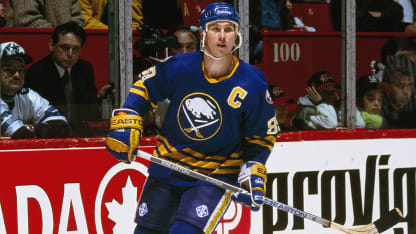TORONTO -- Alexander Mogilny was in a deep sleep when the phone rang in the middle of the Russian night.
It was a call almost two decades in the making.
As the 56-year-old woozily answered, the voice on the other end of the line was Ron Francis, the former NHL great who now serves as the Chair of the Hockey Hall of Fame Selection Committee. The message to Mogilny, who is currently president of his hometown team of Amur Khabarovsk of the Kontinental Hockey League: Congratulations on being elected to the Hockey Hall of Fame.
Francis didn't use the word “finally.” He probably should have.
Mogilny’s reaction did not include any whooping, any jumping for joy, any screams of jubilation. In this, his 17th year of eligibility for selection, after being overlooked time after time after time, there understandably was just a respectable acknowledgement.
“I am happy to be part of a great organization like the Hockey Hall of Fame," Mogilny said. "I want to thank both my Russian and NHL teammates for helping me achieve this honor.”
Francis mentioned the 2003-04 season, when he played the final 12 games of his own Hall of Fame career with Mogilny and the Toronto Maple Leafs. He’d presented Mogilny with a special bottle of wine at that time, and now wondered if his former teammate, if he still had it, would open it in celebration.
“It’s 3 a.m. in the morning here,” Mogilny replied.
Shortly afterwards he was snoozing again, thereby making him unavailable for the Hall’s media conference call with all the selections for the Class of 2025.
After all that time waiting, who could blame him for wanting to get some extra shut-eye?
Certainly not Hall of Fame goaltender Martin Brodeur, Mogilny’s teammate with the 2000 New Jersey Devils Stanley Cup-winning team.
“I have a smile on my face at hearing this news about Alex finally getting in,” Brodeur told NHL.com from his St. Louis-area home. “I mean, it’s so long overdue for someone who so deserves to be in the Hall.
“But, I mean, what the heck took so long?”
It’s a question players and former players, media and fans, lovers of the game, have asked for years.




















